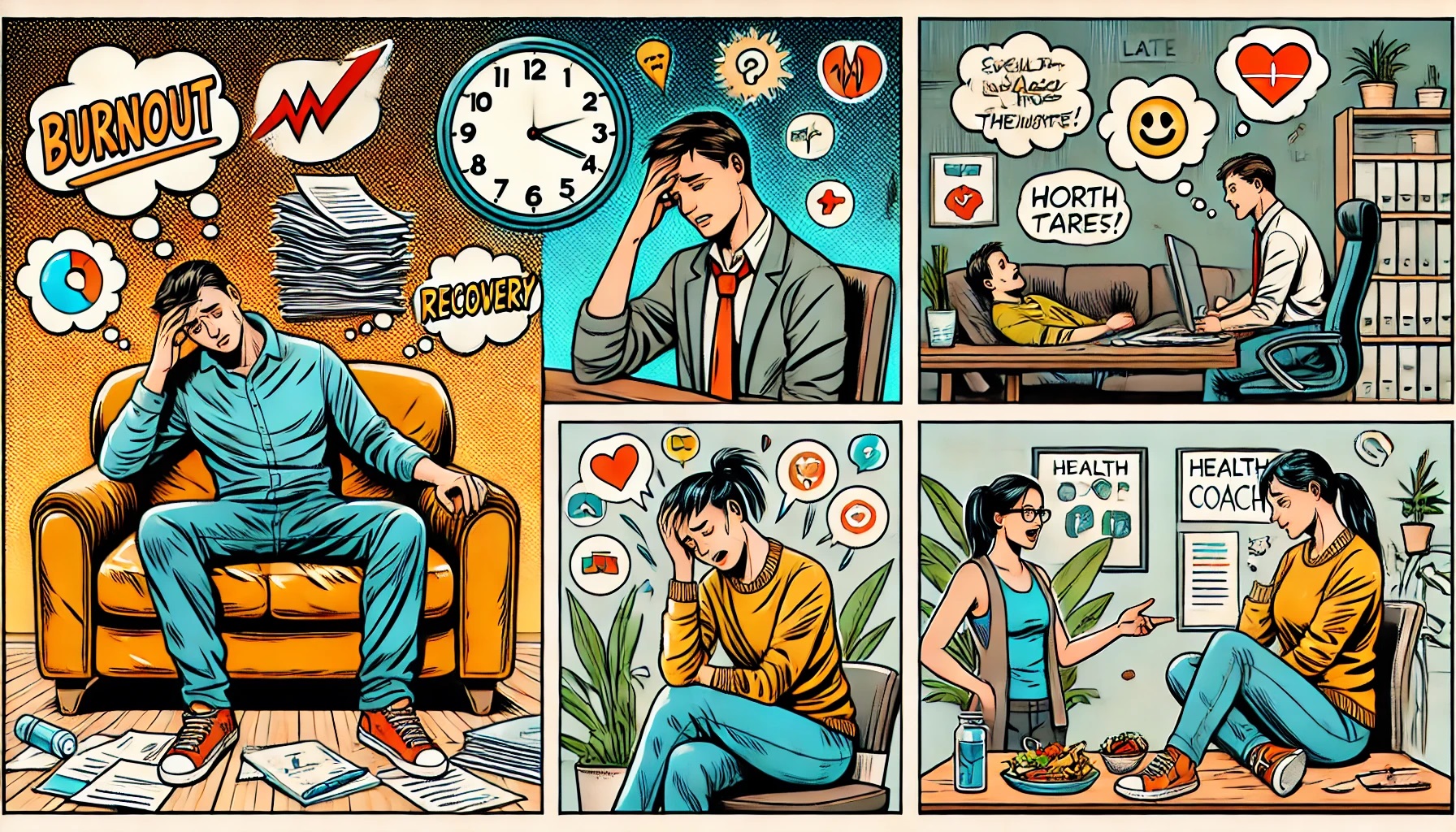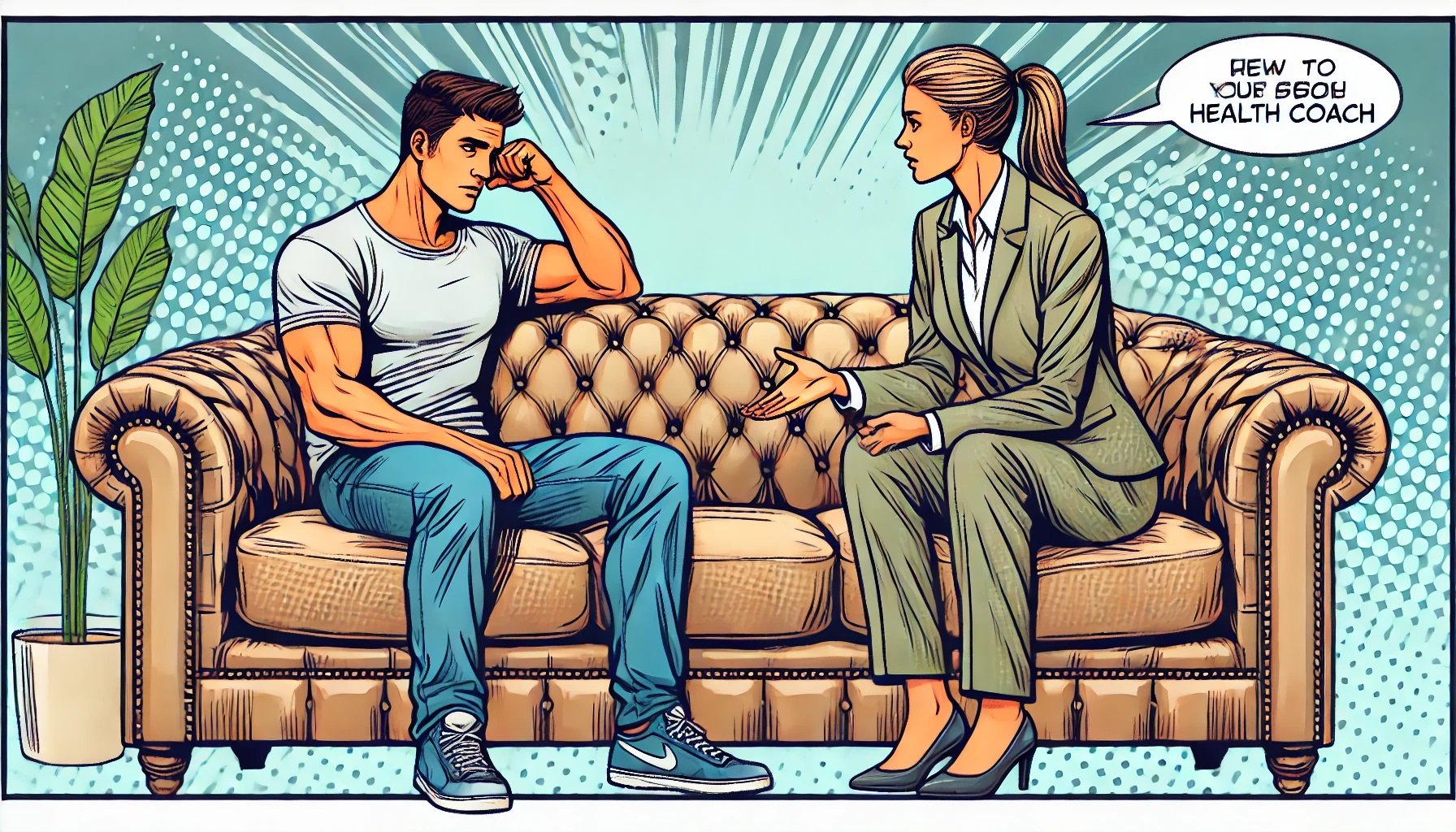Stress is part of life.
There’s the good kind—the one that motivates, energizes, and moves us forward. But then there’s the kind that creeps into every corner of our lives, even our downtime. When you're on holiday but can’t stop worrying whether your holiday is perfect enough. When stress, exhaustion, lack of motivation or scatterbrained feelings take over—maybe it's time to admit something needs to change. Because believe it or not, this isn’t “just how adulthood works.”

Could this be burnout?
Burnout is increasingly becoming a widespread issue—especially among people in their 40s. Careers, families, responsibilities… everything keeps piling up, and somehow there’s less and less energy left for you. When nothing seems to recharge you anymore, when you feel like you’re failing in all your roles and just trying to get through the day, it might be time to ask for help. That’s where a health coach comes in.
So what is a health coach?
Think of a health coach like a personal trainer—but not just for your body, for your whole life. They’re not doctors, and they’re not therapists. They’re professionals who help you reconnect with your balance. They support you in building new habits, managing stress better, and regaining the energy you lost somewhere between unread emails, deadlines, and family duties.

What do they actually do?
Health coaches are supportive partners who help clarify your life goals, offer fresh perspectives, and co-create personalized strategies for change.
-
They help you recognize the signs of burnout.
Burnout doesn’t hit all at once. It sneaks in gradually. A coach can help you identify the warning signs—feelings you may have normalized for too long. For example:-
Constant fatigue, even when you technically get enough sleep.
-
Lack of motivation, even for things you used to love.
-
Irritability, trouble concentrating, or the feeling that you’re just spinning your wheels.
-
-
They help you build a sustainable daily routine.
Maybe right now it feels like there’s just no time for anything. But that can change. A coach will help you establish small daily habits that gradually bring more balance into your life—whether it’s a 10-minute morning breathing exercise, a short walk, or a strict “no emails after 8 p.m.” policy. -
They offer guidance on nutrition and lifestyle—not diets.
A coach helps you find what kinds of foods and habits actually give you more energy. Maybe that afternoon coffee isn’t the boost you need anymore—maybe there’s a better solution to avoid that evening crash. -
They teach you to say no.
One of the biggest contributors to burnout is being overwhelmed. The “I have to do everything myself or it won’t get done right” mindset will eat away at you over time. A coach helps you identify what really needs your attention—and what you can delegate or simply let go of.

When should you consider working with a coach?
If your life feels like one never-ending to-do list, and even Monday mornings are exhausting, it might be time to take a step back. A health coach isn’t a miracle worker—but they can help you take back control. Because maybe you’ve come to accept constant tiredness, stress, and the “I’ll rest someday” mindset as normal. But it’s not.





